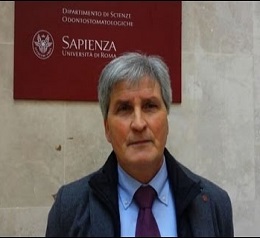Scholars International Conference on
Frontiers in Chemistry and Drug Discovery
THEME: "Frontiers in Drug Discovery, Development and Lead Optimization"
 25-26 Aug 2021
25-26 Aug 2021  ONLINE EVENT
ONLINE EVENT THEME: "Frontiers in Drug Discovery, Development and Lead Optimization"
 25-26 Aug 2021
25-26 Aug 2021  ONLINE EVENT
ONLINE EVENT 
Deputy Rector for the Internationalization Sapienza - University of Rome, Italy
Title: Full Professor
Bruno Botta was born in 1954 and got his Degree in Chemistry in 1977 at "Sapienza" University of Rome. During the years 1984-1985, he was appointed as postdoctoral associate at the Department of Chemistry of the University of British Columbia (UBC, Vancouver, Canada) working on the synthesis and biosynthesis of clinically important anticancer alkaloids of the vinblastine-vincristine family. From 1981 to 1992 he was appointed as assistant professor (researcher) at the Catholic University of Rome. From 1992 to 2001 he was appointed as associate professor of organic chemistry at "Sapienza" University of Rome (Faculty of Pharmacy) and became full professor at the same University in 2001. Since 2011,
He was invited to give lectures in the following universities: Michigan State University (USA), Wofford College Spartanburg (SC, USA), The Scripps Research Institute, La Jolla (CA, USA), University of British Columbia (Vancouver, Canada), Universidad de Montevideo (Uruguay), Stanford University (CA, USA), Universidade Federal de Pernambuco (Brazil), Toho University, Chiba, Tokyo (Japan).
He is author of 150 publications, including 5 patents (3 national and 2 international - USA and Europe), and, beside that, he is author and co-author of 10 books. For the Italian publishing house Edi-Ermes he edited 2 text books of Organic Chemistry.
The main research interest is in the field of molecular recognition and in the field of natural active compounds and their application to problems in organic and biological chemistry.
Approaches includes: